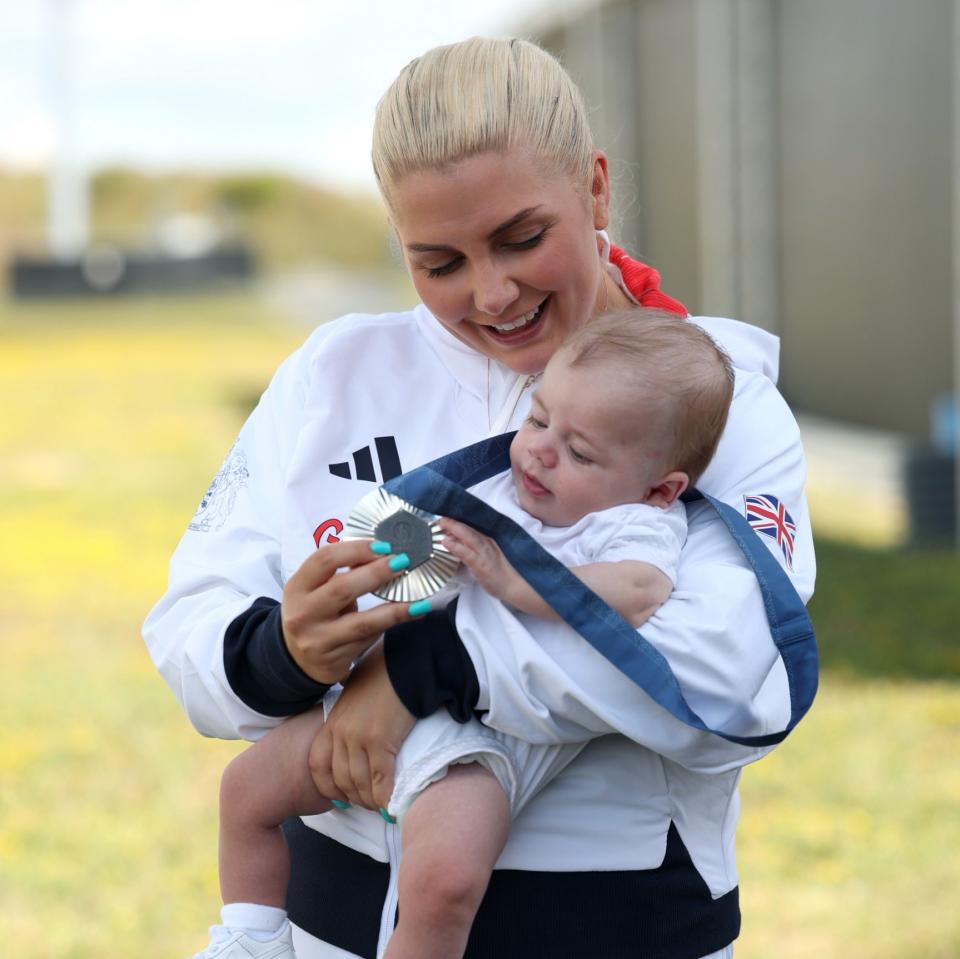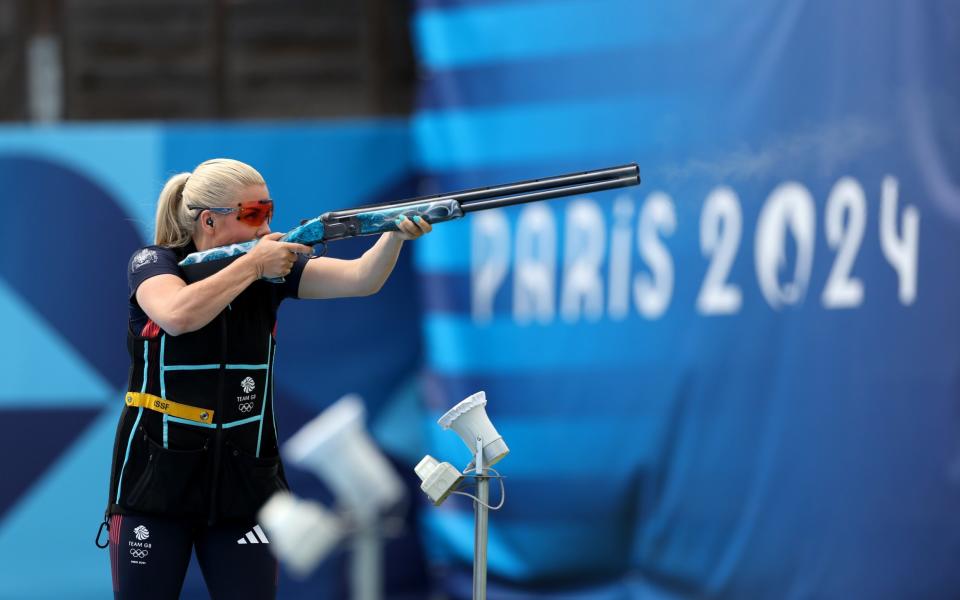

Team GB shooter Amber Rutter found herself caught up in an extraordinary Olympic refereeing controversy when the absence of video replays denied her the chance of upgrading her historic silver medal to gold.
Competing for the first time since giving birth just three months ago, Rutter became the first British woman ever to win an Olympic shooting medal before celebrating with her husband and baby boy Tommy, who had secretly flown from home to surprise her.
But the moment was overshadowed by a bizarre episode late on in the skeet final when Rutter was ruled to have missed her ninth shot in a sudden-death shoot-off with Chile’s Francisca Crovetto Chadid for gold. Rutter immediately spun round to tell her coach to appeal the decision, only to be informed that video replays were not in use at these Olympics, despite their regular use at other international shooting competitions. Crovetto Chadid duly sealed her fate, and Rutter had to make do with silver.
“It’s clearly a hit,” said her angry coach Richard Brickell. “All the coaches knew it was a hit, everyone in the stadium knew it was a hit and everyone at home knew it was a hit. Unfortunately the only people who didn’t were the judges. It’s tough. A big mistake for a very important medal.
“Sponsorship and everything else is based around Olympic medals, and gold even more so. So it will have ramifications.”
Brickell said he hoped the incident would ensure video replays are always in use at major tournaments, a suggestion that Rutter agreed with.
“It is something we had the last time I competed [at last year’s European Championships] so I’m not sure where it’s gone,” she said. “I didn’t realise it wasn’t here.
“I think it’s so important because it’s moments like these that you want the true result. The fact that viewers at home can see it, I’m sure they will be asking questions about how the refs haven’t seen it. It is a real shame but hopefully the next time they will see it.
“But that’s sport for you. It’s all swings and roundabouts. To come away with a silver medal, I’m just super-proud of my performance and I’m not going to let a target like that take away my moment. I know I put in a really solid performance out there so I’m going to celebrate and enjoy my moment.”
And what a moment it was. General wisdom suggested it would be unlikely for Rutter, 26, to even compete here at the Chateauroux Shooting Centre, 270 kilometres south of Paris, so soon after giving birth, let alone win a medal. She had not picked up a gun for many months either side of Tommy’s arrival until finally returning to training in June. Even then, this was her first competition for more than a year.
Keen not to be away from Tommy for too long, she had only flown in to compete a few days ago, with her husband James under strict instructions to stay at home with the baby and not follow her to France. That he ignored those orders is something she will be eternally grateful for as she swung around to celebrate and spotted them standing a few metres away.
“I had no idea they were coming,” said Rutter. “I know Tommy might not remember it but I definitely will so I’m so glad they made the journey.
“I didn’t spot them before the end, thank God. I’d said to my whole family not to come because I wanted to focus on me, and if I hear Tommy cry that will be it – my focus will be straight on him. I don’t know how close to the range he got but hopefully not that close because he’d definitely have been playing with fire.”


The medal marked the culmination of an extraordinary career of highs and lows. Rutter was 10 when her grandfather encouraged her to take up the sport, and just five years later she became the youngest ever winner of a World Cup series, earning the BBC Young Sports Personality of the Year award.
She finished sixth on Olympic debut in Rio, and then almost quit the sport after she was denied the chance to compete at the Tokyo Games when diagnosed with Covid the night before she was due to fly to Japan. She was ranked world No 1 at the time.
Her pregnancy was a careful balancing act, attempting to navigate the lack of medical research into the noise and recoil involved with shooting and how it could affect a baby. Eventually, she opted to continue training until 28 weeks pregnant.
After introducing her to the sport, her grandfather sadly did not live to see her biggest moment of glory in the French countryside on Sunday. “His dream was to see me win an Olympic medal and although he may not be here today I know he’ll be watching up there,” said Rutter. “This is for him as well.”


At an Olympics where Team GB rower Helen Glover has also shown it is possible to stand on the podium while raising a family, Rutter hopes she can inspire more mothers to realise their own dreams.
“I hope we can share the message with other mums how important it is that your life doesn’t stop after having a baby,” she said. “Whatever your passion is, your life doesn’t have to stop.
“It is honestly the best thing in the world being a mum. I’m so glad I managed to balance my life and training. It was really tough but the fact I never lost sight of what truly matters, which is my family and the Olympic dream, I’m really proud of that.”
As for future plans, they can wait for another day: “I feel like I’ve been so busy the last few months. I just want to focus on family time and soak this moment up. We’ll see whether I come back.”
Source Agencies


